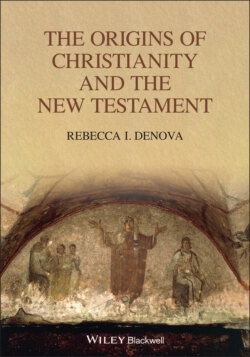Читать книгу The Origins of Christianity and the New Testament - Rebecca I. Denova - Страница 14
Who was Jesus of Nazareth?
ОглавлениеThere is an old hymn that used to be taught to children, “Yes, Jesus loves me, for the Bible tells me so.” This sufficed for centuries, but beginning with the Enlightenment, people began to question what is written in the Bible, and the age-old conviction that it was “the word of God.” In the past 200 years, scholars, historians, and, yes, theologians have explored new approaches to uncovering the history of the Bible and how it came into existence.
Nowhere is this more evident than in the hundreds of books in the past seventy years exploring what is termed “the quest for the historical Jesus.” At the center of this quest is the (belated) scholarly discovery of “Jesus the Jew.” Centuries of Christian theology presented him as the first “Christian” and the founder of a new religion. If we strip away this later theology, we can discover the story before there was the “church.” Jesus was a Jewish apocalyptic prophet who lived and preached in the Roman Imperial province of Judea in the first century ce.
This book is about the ways in which modern scholars go about illuminating “the historical Jesus” and the various ways in which his followers proclaimed his teaching in the cities of the Roman Empire. Our sources for the story are in the New Testament. The New Testament was not officially “validated” until a few centuries later, but it contains our primary information for the origins of what eventually became the religion of Christianity.
Surveys on the history of early Christianity number in the hundreds. Most of them, however, spend an inordinate amount of time in scholarly debate, utilizing jargon invented by academics. A goal of this textbook is twofold: (i) to provide the basic understanding of the historical context of the ministry of Jesus; and (ii) to provide a guide for both interested lay readers and undergraduates studying the history of Christianity. Understanding the “origins” of the past elucidates continuing modern concepts and beliefs and their continuing viability in a changing world.
